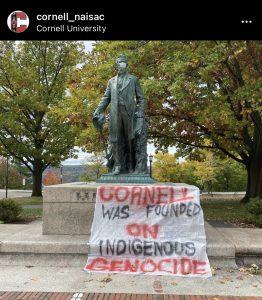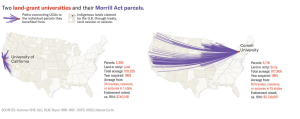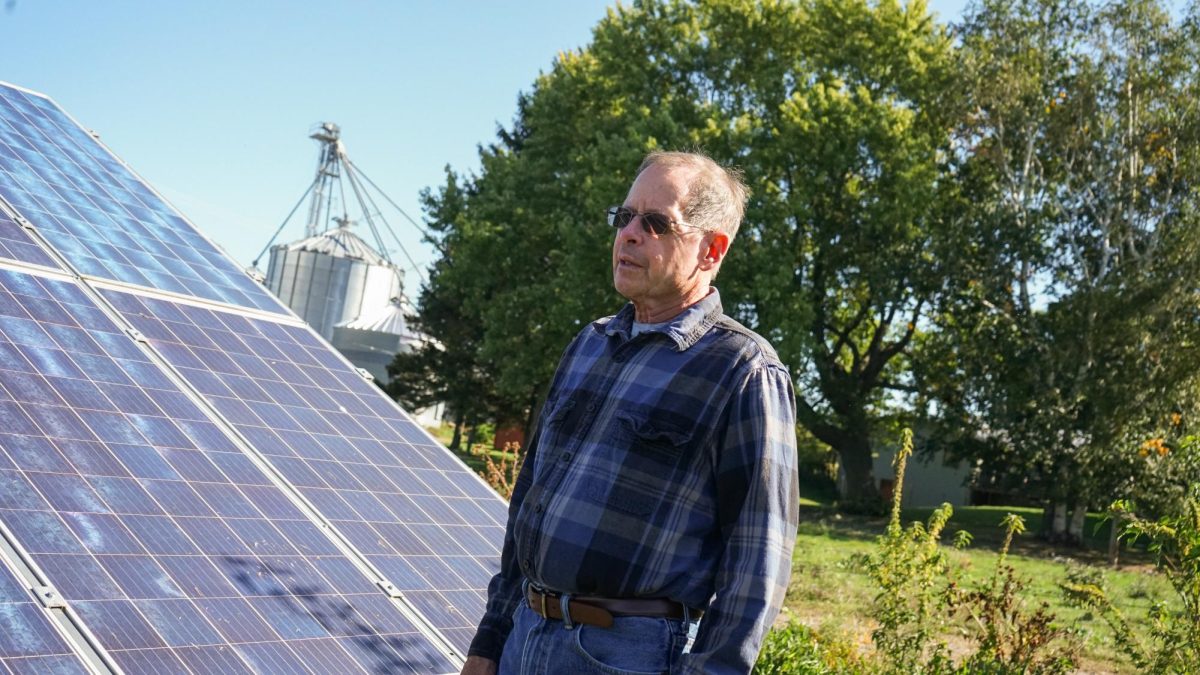Native American and Indigenous Students at Cornell (NAISAC) released a petition, demanding that Cornell University make changes to support Indigenous students and acknowledge the university’s founding.
There are 10 demands on the petition, including increasing funding to the American Indian and Indigenous Studies Program (AIISP) in order to support the recruitment and retention of Indigenous students and faculty members; acknowledging Gayogo̱hó꞉nǫ’, or the Cayuga Nation, before all Ithaca-based Cornell events; removing monuments of colonizers; and reinstating the Ad Hoc Committee on Native American Affairs to oversee the demands. The group was made up of students, faculty and staff.
In order for the demands to become a reality, it must be passed in five different assemblies, which include those made up of undergraduate students, graduate and professional students, employees, and faculty.
The petition was unanimously passed in the Undergraduate Student Assembly on Oct. 29 and sent to the Office of the President, but there has not been a response as of Nov. 13. It will be voted on in the Graduate and Professional Students Assembly on Nov. 23.
“If we don’t hear from the President’s Office, or if the feedback that we get from their office is not in support of the demands, then we’ll hopefully take it to the Board of Trustees for the following months,” NAISAC external relations chair Colin Benedict.
As of Nov. 13, nearly 900 people signed the petition. Benedict said that 409 were undergraduate students, 117 were graduate students, 38 were faculty, 27 were staff, 126 were alumni and 182 were community members unaffiliated with the university.
NAISAC and AIISP expect some delay from the school due to financial cutbacks from COVID-19 and logistics, understanding that change takes time.
“I think the administration is still spending money…in areas where it feels…compelled to do so… We certainly feel, and the students certainly feel, that this is something where…some material resources need to be put into play by the administration,” Associate Professor and Director of AIISP Kurt Jordan said.
Professor Jordan said that there is a long history of Indigenous student activism at Cornell that resulted in change, including creating AIISP in 1983 and making the university officially recognize Indigenous Peoples’ Day on its calendar in 2017.
AIISP created a faculty committee to work on Cornell University and Indigenous Dispossession Project. Professor Jordan explained in a blog post that the purpose is “to better understand this history and the specific impacts Cornell has had on Indigenous communities.”
“We’re going to be coming up with our own set of recommendations for the university and I think…our timeframe is a lot longer because we need to consult with…the affected communities and that sort of delicate work of diplomacy,” he said.
Benedict explained that NAISAC decided this semester would be the best time to release the demands.

“Given the current climate of Cornell’s campus at this moment in history, as well as the ongoing pushes across the country for social change, for Black liberation, for Indigenous sovereignty, we believe that this semester was an appropriate time to push for such a thing,” he said.
According to Professor Jordan, the petition partially stemmed from the High Country News article written by Robert Lee and Tristan Ahtone called “Land-grab universities: Expropriated Indigenous land is the foundation of the land-grant university system”. The article stated that Cornell University received $5,739,657 worth of Indigenous land from its endowment via the Morrill Act.
The act was a law enacted in 1862 that was titled as “An Act Donating Public Lands to the Several States and Territories which may provide Colleges for the Benefit of Agriculture and the Mechanic Arts,” according to the Library of Congress.
The “public land” was Indigenous land that was purchased, but more than a quarter of the parcels were never paid for, reported High Country News. Cornell is one of 52 universities that benefited from this land grab. However, Cornell received the most acreage and benefited the most when the acreage was sold off.







